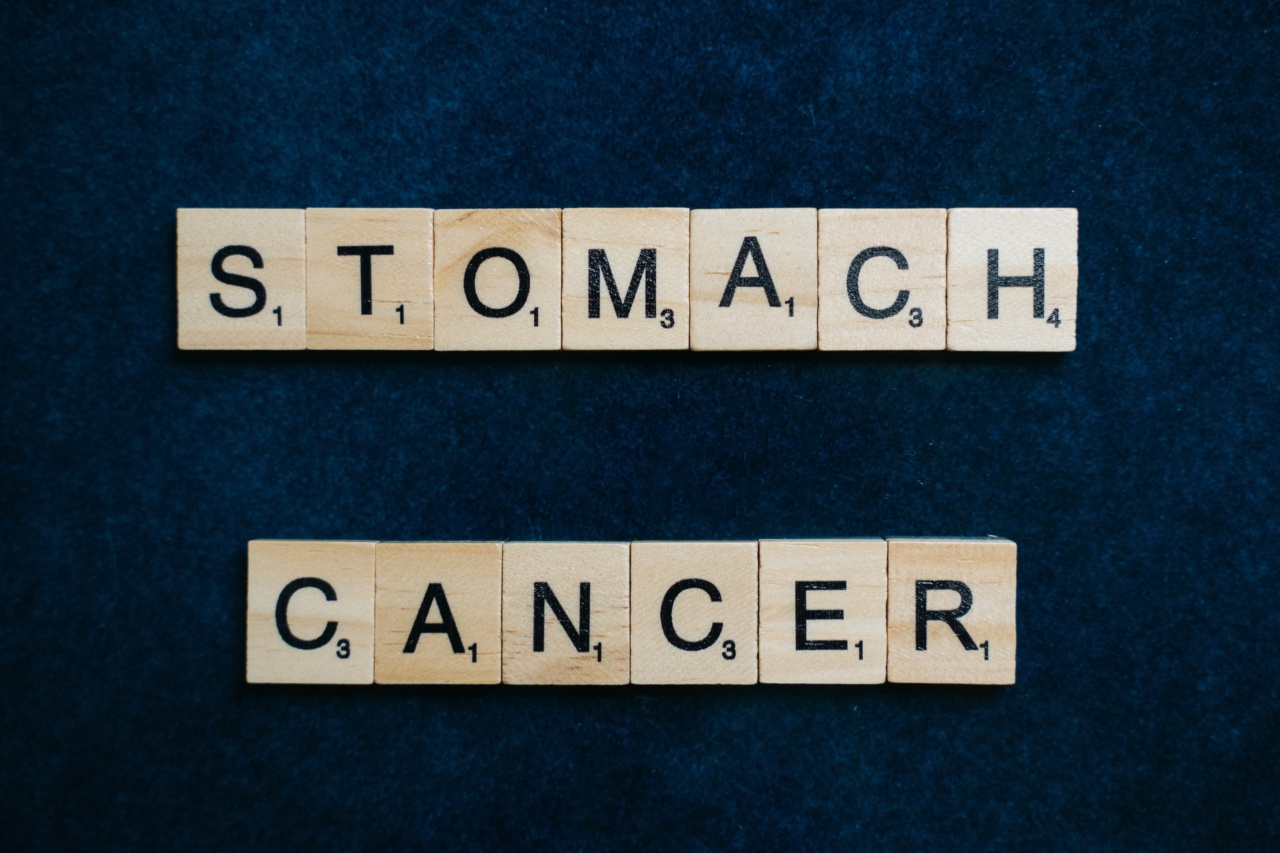Stomach cancer is the fourth most common cancer in the world and the second most common cause of cancer-related deaths. It is a type of cancer that starts in the stomach and can spread to other organs of the body if not detected early.
Although stomach cancer can be a deadly disease, there are ways to reduce its risk and improve one’s chances of survival. In this article, we’ll uncover the truth about stomach cancer, its causes, symptoms, diagnosis, and treatment options.
What is Stomach Cancer?
Stomach cancer, also known as gastric cancer, is a type of cancer that starts in the stomach. The stomach is a muscular sac that breaks down food chemically and mechanically, and releases it to the small intestine.
The wall of the stomach has several layers of tissue, each with a specific function. Stomach cancer usually starts in the innermost layer (lining) of the stomach and can grow into the other layers. Stomach cancer can also spread (metastasize) to other organs of the body such as the liver, lungs, and bones.
Causes of Stomach Cancer
There is no one cause of stomach cancer. However, there are several factors that increase one’s risk of developing the disease. They include:.
- H. pylori infection: H. pylori is a bacterium that lives in the stomach and can cause inflammation and ulcers. People who have long-term H. pylori infection have a higher risk of developing stomach cancer.
- Family history: People who have a first-degree relative (parent, sibling, or child) with stomach cancer have a higher risk of developing the disease themselves.
- Age: Stomach cancer is more common in older adults, especially those over 50 years old.
- Diet: A diet that is high in salty, smoked, and pickled foods can increase one’s risk of stomach cancer. A diet that is rich in fruits and vegetables can lower one’s risk.
- Tobacco and alcohol use: Smoking and heavy alcohol consumption can increase one’s risk of developing stomach cancer.
Symptoms of Stomach Cancer
The symptoms of stomach cancer can be vague and non-specific, which makes the disease difficult to diagnose. However, some common symptoms of stomach cancer include:.
- Abdominal pain or discomfort
- Loss of appetite
- Unintentional weight loss
- Nausea and vomiting
- Bloating
- Difficulty swallowing
- Feeling full after eating only a small amount of food
These symptoms can occur in other conditions as well, so it is important to see a doctor if any of them persist or worsen over time. The earlier stomach cancer is detected, the better the chances of survival.
Diagnosing Stomach Cancer
There are several tests that can be done to diagnose stomach cancer. These include:.
- Endoscopy: A thin, flexible tube with a camera on the end is inserted through the mouth and into the stomach to look for abnormalities.
- Biopsy: During an endoscopy, small samples of tissue can be taken from the abnormal area and examined under a microscope to see if there are cancer cells.
- CT scan: A series of X-rays are taken to create detailed images of the inside of the body.
- PET scan: A small amount of radioactive material is injected into the body and a scanner is used to create images of the body’s cells and tissues.
- Blood tests: Blood tests can be done to look for certain markers or proteins that may be present in people with stomach cancer.
It is important to diagnose stomach cancer early, before it has a chance to spread. If stomach cancer is suspected, a doctor will likely refer the patient to a specialist for further evaluation and treatment.
Treatment Options for Stomach Cancer
The treatment for stomach cancer depends on several factors, including the stage of the cancer, the size and location of the tumor, and the person’s overall health. The three main treatment options for stomach cancer are:.
- Surgery: Surgery is often the main treatment for stomach cancer. The surgeon will remove the cancerous tissue and any nearby lymph nodes to prevent the cancer from spreading.
- Chemotherapy: Chemotherapy is a type of treatment that uses drugs to kill cancer cells. It is often used before or after surgery to help shrink the tumor and prevent the cancer from returning.
- Radiation therapy: Radiation therapy uses high-energy X-rays to kill cancer cells. It is often used in combination with chemotherapy to treat stomach cancer.
Other therapies may be used to help manage symptoms and improve quality of life, including palliative care, which focuses on relieving pain and other symptoms of cancer, and integrative medicine, which combines traditional medical treatments with complementary therapies such as acupuncture and meditation.
Preventing Stomach Cancer
There are several things you can do to reduce your risk of developing stomach cancer, including:.
- Get treated for H. pylori infection: If you have H. pylori infection, it is important to get treated with antibiotics to reduce your risk of developing stomach cancer.
- Eat a healthy diet: A diet that is rich in fruits and vegetables and low in salty, smoked, and pickled foods can help reduce your risk of stomach cancer.
- Stop smoking and limit alcohol consumption: Smoking and heavy alcohol consumption can increase your risk of developing stomach cancer, so quitting smoking and drinking in moderation can help reduce your risk.
- Exercise regularly: Regular exercise can help reduce your risk of developing stomach cancer.
Conclusion
Stomach cancer is a serious disease that can be difficult to diagnose and treat. However, with early detection and prompt treatment, the chances of survival can be improved.
It is important to be aware of the risk factors for stomach cancer and to take steps to reduce your risk. If you experience any symptoms that are persistent or worsen over time, see a doctor. Remember, the earlier stomach cancer is detected, the better the chances of survival.




























